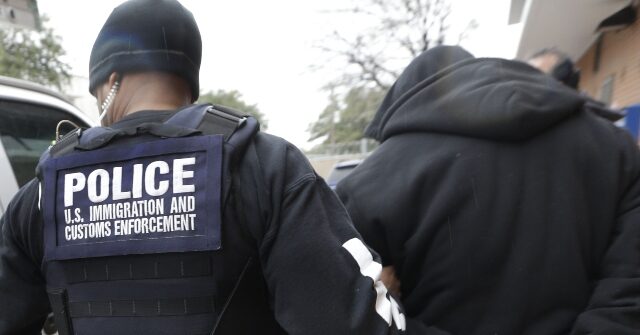Winnebago County Sheriff Gary Caruana has made a notable reversal regarding a plan to establish a facility for the Immigration and Customs Enforcement (ICE) aimed at detaining illegal migrants pending deportation in northern Illinois. Initially supportive of the proposal, the Republican sheriff faced intense pushback from activist groups advocating for immigrant rights, which played a significant role in his decision to withdraw his support just before a scheduled rally in downtown Rockford, the county’s largest city. The backlash came amid a growing national conversation about immigration enforcement and local law enforcement’s role in it, positioning Caruana in a challenging political situation where public opinion and community sentiment significantly influenced his policymaking.
Caruana’s decision to halt the plan was influenced by critical issues within the county’s law enforcement resources, particularly a shortage of jail staff. He expressed concern over the type of detainees that ICE would accommodate in the proposed facility, urging that only individuals with criminal convictions should be detained. Unfortunately, ICE did not guarantee this restriction, which further complicated Caruana’s support for the facility. The sheriff articulated a need to balance law enforcement responsibilities with fiscal prudence, highlighting that public safety and efficient use of funds are paramount in his job.
The proposed ICE facility had garnered considerable opposition from various activist groups and political figures who view the immigration system as exploitative. Fred Tsao of the Illinois Coalition for Immigrant and Refugee Rights asserted that the immigration detention apparatus makes profits off deportations, framing it as a “revenue generator” that commodifies human beings. Tsao’s rhetoric, reflecting the anger and frustration of the immigrant advocacy community, underscores the contentious nature of immigration policy and its implications for individuals affected by deportation processes.
Amidst this unfolding drama, the political landscape concerning immigration in Illinois is also shifting. Notably, Illinois Governor J.B. Pritzker, previously seen as an opponent of aggressive immigration enforcement, has begun to echo sentiments advocating for the deportation of undocumented individuals convicted of violent crimes. In a surprising pivot following a visit from incoming Trump administration border czar Tom Homan, Pritzker stated unequivocally that he believes violent undocumented criminals should face deportation. This development highlights a potential shift in political strategy that may have broader implications for local law enforcement and immigration policy across the state.
Homan’s comments during his Chicago visit underscored a more aggressive federal stance concerning undocumented individuals, indicating that deportation efforts would initially target those with criminal records. He implied that state and local authorities should not obstruct ICE’s enforcement actions and warned that officials who choose to stand in the way of these operations could face legal consequences. This unequivocal stance from federal authorities places local sheriffs, like Caruana, in a precarious position as they navigate the tensions between federal immigration priorities and community opposition.
The escalation of these debates in Winnebago County reflects a broader national dialogue surrounding immigration enforcement, the role of local law enforcement, and the complexities of balancing community safety with the rights of undocumented individuals. Caruana’s reversal signals a recognition of the significant public sentiment surrounding immigration issues, illustrating how local policymakers must increasingly consider community perspectives in their decision-making processes. This situation not only informs future discussions on immigration policy but also emphasizes the evolving dynamics of local and federal relations in a contentious political environment.

